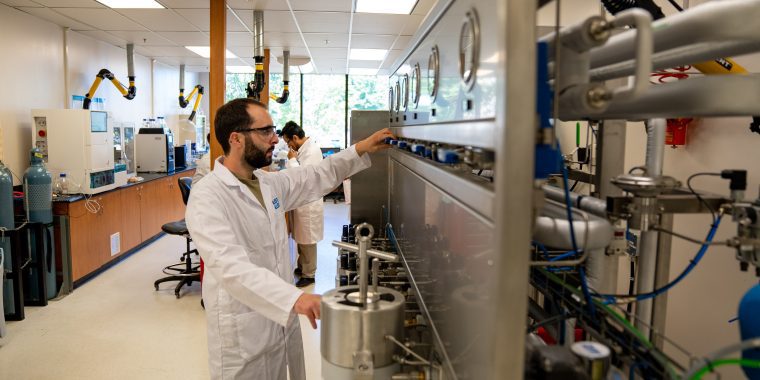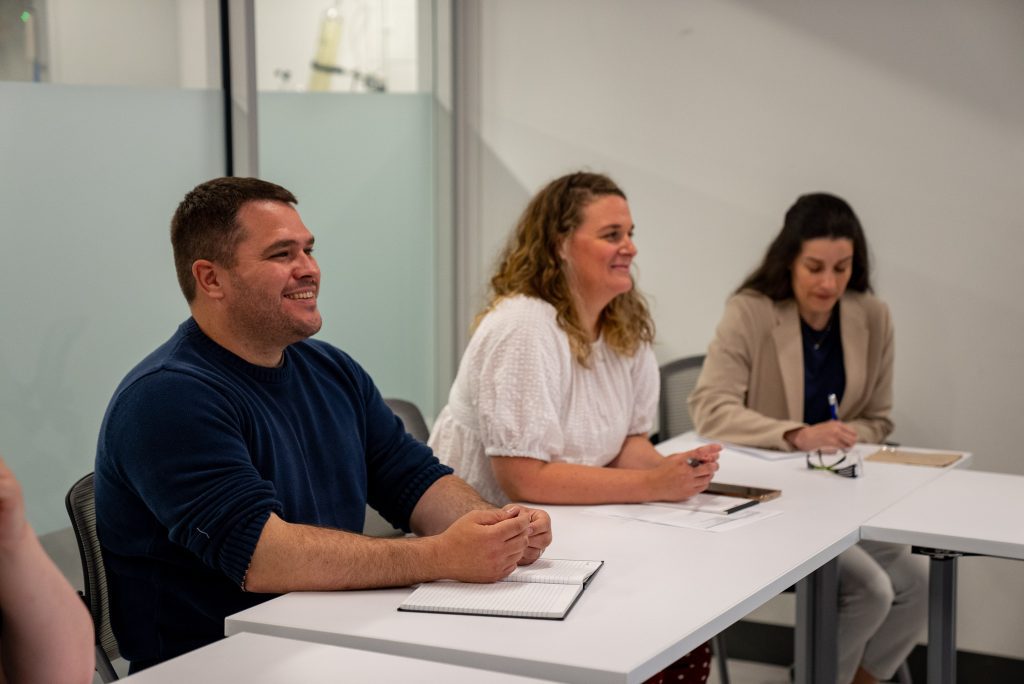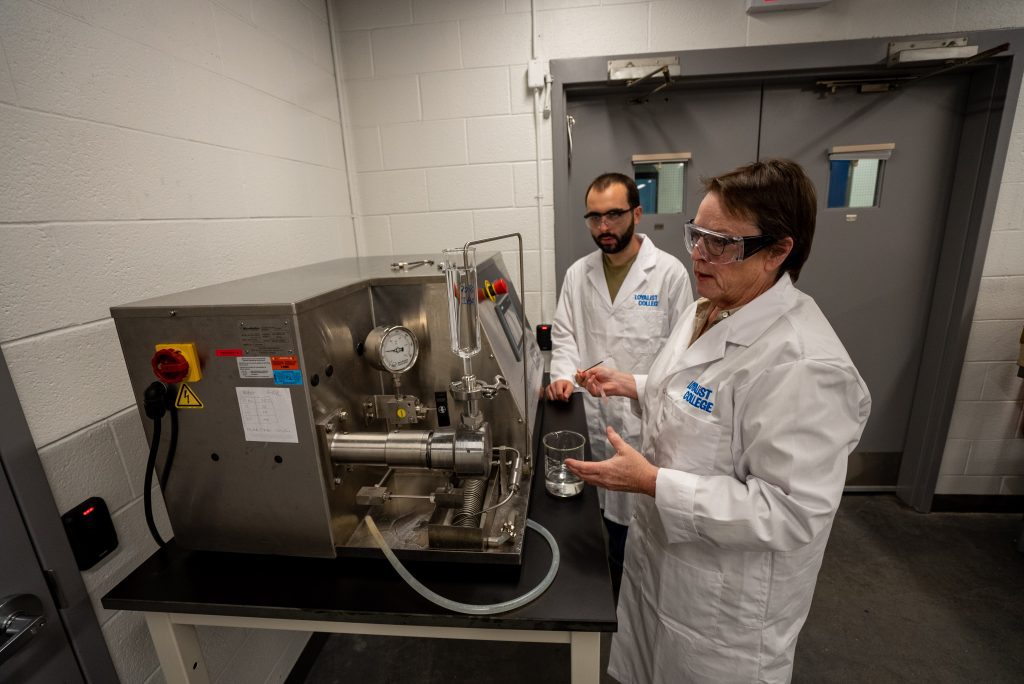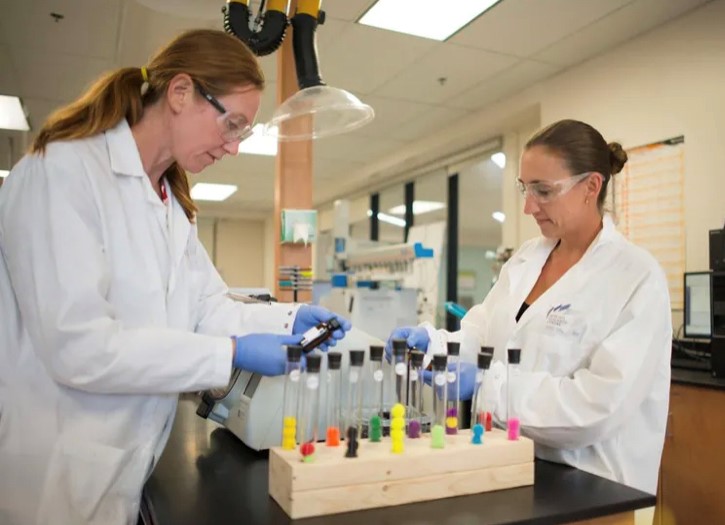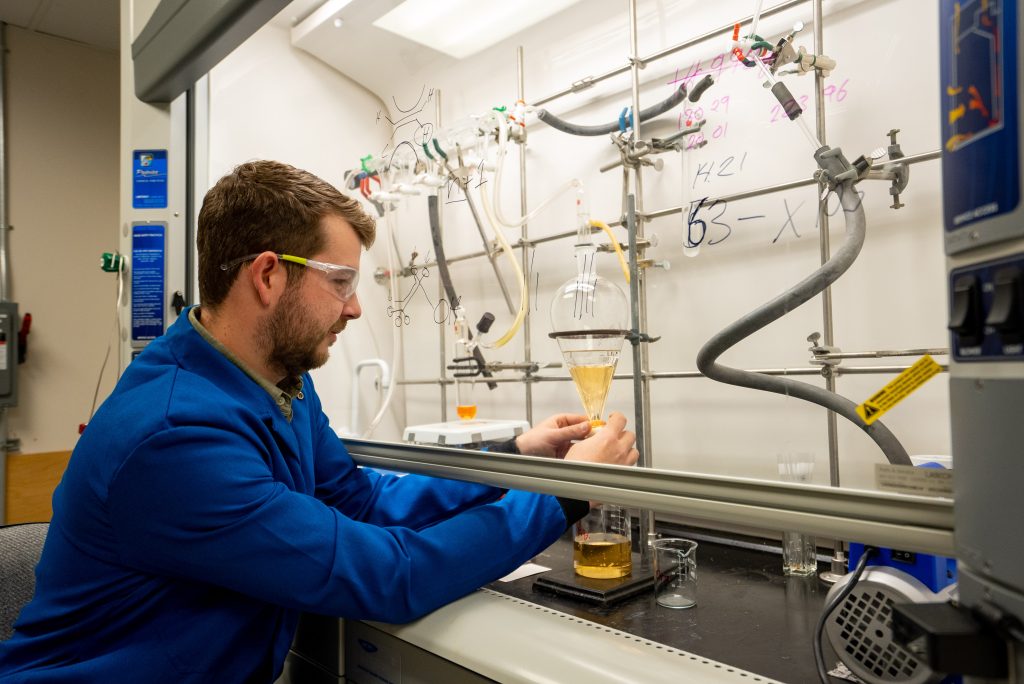Loyalist College Joins Partners to Lead Ontario's Bio-Cleantech Sector
Belleville, Ontario, August 15, 2022 – As a member of the new, federally-funded Canadian Bio-Cleantech Applied Research Network (CBARN), Loyalist College is proud to support Canada’s transition to a green economy. Founded in partnership with Lambton College, Fanshawe College and Mohawk College, CBARN has received a $3-million investment from the FedDev Ontario Jobs and Growth Fund to support research and advancement in the bio-cleantech sector.
“[This] investment reinforces the Government of Canada’s commitment to achieving net-zero emissions by 2050 through supporting projects that pave the way for a cleaner future, contributing to a resilient economy and the generation of good green jobs,” said the Honourable Helena Jaczek, Minister responsible for the Federal Economic Development Agency for Southern Ontario. “Through the Canadian Bio-Cleantech Applied Research Network, 65 bio-based SMEs will be able to increase their competitiveness, products and customer base, grow their business and increase their workforce, boosting Canada’s green economy for years to come.”
Members of CBARN will work together to provide bio-cleantech businesses with a full range of specialized facilities, infrastructure and expertise to help expand their products and optimize their processes. This collaborative approach offers small and medium-sized enterprises (SMEs) access to invaluable research and innovation support through one centralized channel.
“Our membership in CBARN aligns perfectly with Loyalist’s commitment to the United Nations Sustainable Development Goals (SDG), and our ongoing efforts to lead change and innovation in our region,” said Mark Kirkpatrick, Loyalist College Acting President and CEO. “We’re thrilled to work collaboratively with our partner colleges in Southern Ontario to support environmentally-conscious SMEs while providing our students with extraordinary work-integrated learning experiences.”
Companies registered with a business number who have operations in Southern Ontario are eligible to participate. CBARN projects will include bio-based cleantech solutions, bio-based products and processes, natural health products, and sustainable and regenerative agriculture.
About FedDev Ontario
The Federal Economic Development Agency Jobs and Growth Fund provides funding to businesses and organizations to help create jobs and position local economies for long-term growth. In Southern Ontario, FedDev Ontario is investing $224 million to help job creators and the organizations that support them to future-proof their businesses, build resiliency and prepare for growth by transitioning to a green economy, fostering an inclusive recovery, enhancing competitiveness, and creating jobs in every corner of the country.
About Loyalist College
Loyalist College is located on the territory of the Huron-Wendat, the Anishnaabeg, and the Haudenosaunee people. We acknowledge our shared obligation to respect, honour, and sustain these lands and the natural resources contained within. Ranked one of Canada’s top 50 research colleges, Loyalist College empowers students, faculty, staff, and partners through experiential, industry cluster-based education, training and applied research programs. As Ontario’s Destination College, the College provides job-ready graduates for, and knowledge transfer to, industry and the community. Located on more than 200 acres in the beautiful Bay of Quinte region, the College is perfectly positioned between Toronto, Ottawa and Montreal. Loyalist College offers more than 70 full-time diploma, certificate and apprenticeship programs in biosciences, building sciences, business, community service, health and wellness, media studies, public safety, and skilled trades. Continuing education options are available through LoyalistFocus.com, including hundreds of online, distance and in-class courses, and through the College’s 100+ university transfer agreements. Loyalist College is a key driver of social and economic health in eastern Ontario. It contributes 3.8 percent of the Gross Regional Product, representing $396.3 million annually to the regional economy – based on an October 2021 report by Emsi. For more information on Loyalist College’s Belleville, Bancroft and Toronto campuses and Port Hope satellite location, visit loyalistcollege.com. To learn more about Loyalist College’s Centre for Natural Products and Medical Cannabis and the College’s Applied Research and Innovation Office, visit loyalistappliedresearch.com.
– 30 –
Contact:
Braden Root-McCaig
Director of Marketing and Communications
647-523-4300
brootmccaig@loyalistcollege.com


